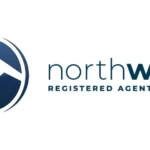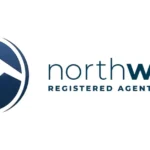
The digital age has revolutionized the way we conduct business and communicate. With the internet becoming an integral part of our lives, it is imperative for organizations to prioritize the security of their online platforms. Domain Validated certificates serve as a critical tool in this pursuit, offering encryption and authentication to protect sensitive data and verify the legitimacy of websites.
Understanding Domain Validated Certificates
Domain Validated certificates are digital certificates that verify the ownership and control of a specific domain name. These certificates are issued by trusted Certificate Authorities (CAs) and are widely used to secure websites, encrypt data transmissions, and establish an encrypted connection between a user’s browser and the website.
The Importance of Website Security
Maintaining a secure website is vital for several reasons:
- Data Protection: Websites often handle sensitive user information, such as personal details, payment credentials, and confidential business data. Implementing security measures like Domain Validated certificates ensures the protection of this information from unauthorized access and interception.
- User Trust: A secure website inspires confidence and trust among visitors. When users see that a website is secured with a Domain Validated certificate, they are more likely to engage, share personal information, and conduct transactions without the fear of data breaches or identity theft.
- Search Engine Rankings: Search engines prioritize secure websites in their search results. By implementing security measures like DV certificates, websites can improve their search engine rankings and attract more organic traffic.
How Domain Validated Certificates Work
Domain Validated certificates follow a straightforward validation process:
- Domain Ownership Verification: The certificate applicant must prove ownership and control over the domain for which the certificate is requested. This verification can be done through email, file-based authentication, or DNS record validation.
- Encryption and Authentication: Once the domain ownership is verified, the CA issues the Domain Validated certificate. This certificate enables secure communication between the website and its visitors by encrypting data transmissions and authenticating the website’s identity.
Top Selling Category: Strengthening Website Security
Implementing Domain Validated certificates falls under the broader category of website security. Several essential practices contribute to strengthening website security:
- Secure Socket Layer (SSL) Encryption: SSL encryption encrypts data transmitted between a user’s browser and the website, ensuring that sensitive information remains private and protected from eavesdropping.
- HTTPS Implementation: Websites should use the HTTPS protocol, which signifies a secure connection. HTTPS not only encrypts data but also helps build trust with users, as indicated by the padlock symbol in the browser’s address bar.
- Regular Security Audits: Conducting periodic security audits and vulnerability assessments helps identify potential weaknesses in website security. Addressing these vulnerabilities promptly minimizes the risk of data breaches and unauthorized access.
Top Selling Products: Trusted Certificate Authorities
When it comes to Domain Validated certificates and website security, several trusted Certificate Authorities offer reliable solutions. Here are a few notable ones:
- Comodo: Comodo is a renowned Certificate Authority known for its range of SSL certificates, including Domain Validated certificates. With their strong encryption and authentication mechanisms, Comodo certificates provide robust security for websites of all sizes.
- DigiCert: DigiCert is a leading provider of digital security solutions, offering a wide range of SSL certificates, including Domain Validated certificates. DigiCert certificates come with strong encryption and advanced features to protect websites and build trust.
- GlobalSign: GlobalSign is a trusted Certificate Authority that provides a variety of SSL certificates, including Domain Validated certificates. Their certificates offer high-level encryption and authentication, ensuring secure communication between websites and users.
FAQs
FAQ 1: What are Domain Validated (DV) certificates?
Domain Validated (DV) certificates are a type of SSL/TLS certificate that provides basic encryption and verification for websites. The validation process for DV certificates involves confirming the ownership of the domain, ensuring that the certificate is issued to the rightful domain owner.
FAQ 2: How do Domain Validated certificates enhance website security?
Domain Validated certificates enhance website security by encrypting the data transmitted between the website and the user’s browser. This encryption protects sensitive information from unauthorized access or tampering. While DV certificates do not provide organization validation, they still play a crucial role in securing website communications and establishing a level of trust for visitors.
FAQ 3: Are Domain Validated certificates suitable for all types of websites?
Yes, Domain Validated certificates are suitable for a wide range of websites, including personal blogs, informational websites, and small business websites. Any website that needs basic encryption and security can benefit from the affordability and ease of obtaining a DV certificate.
FAQ 4: How can I obtain a Domain Validated certificate for my website?
Obtaining a Domain Validated certificate is a straightforward process. You can typically request a DV certificate from a trusted certificate authority or through a hosting provider. The certificate authority will verify your domain ownership by sending an email to the registered domain contact or by validating through domain DNS records.
FAQ 5: Do Domain Validated certificates display the organization’s details in web browsers?
Domain Validated certificates do not display the organization’s details in web browsers. Unlike Organization Validated (OV) or Extended Validation (EV) certificates, DV certificates only provide basic encryption and verification for the domain. As a result, visitors will not see the organization’s details when accessing a website secured with a DV certificate.
Conclusion
Securing websites with Domain Validated certificates is a fundamental step in establishing a trusted online presence. By encrypting data transmissions and verifying the authenticity of websites, these certificates play a vital role in protecting sensitive information and inspiring user confidence. Organizations that prioritize website security and implement Domain Validated certificates are better positioned to safeguard their data, gain the trust of users, and enhance their overall online presence.
Advertisement












